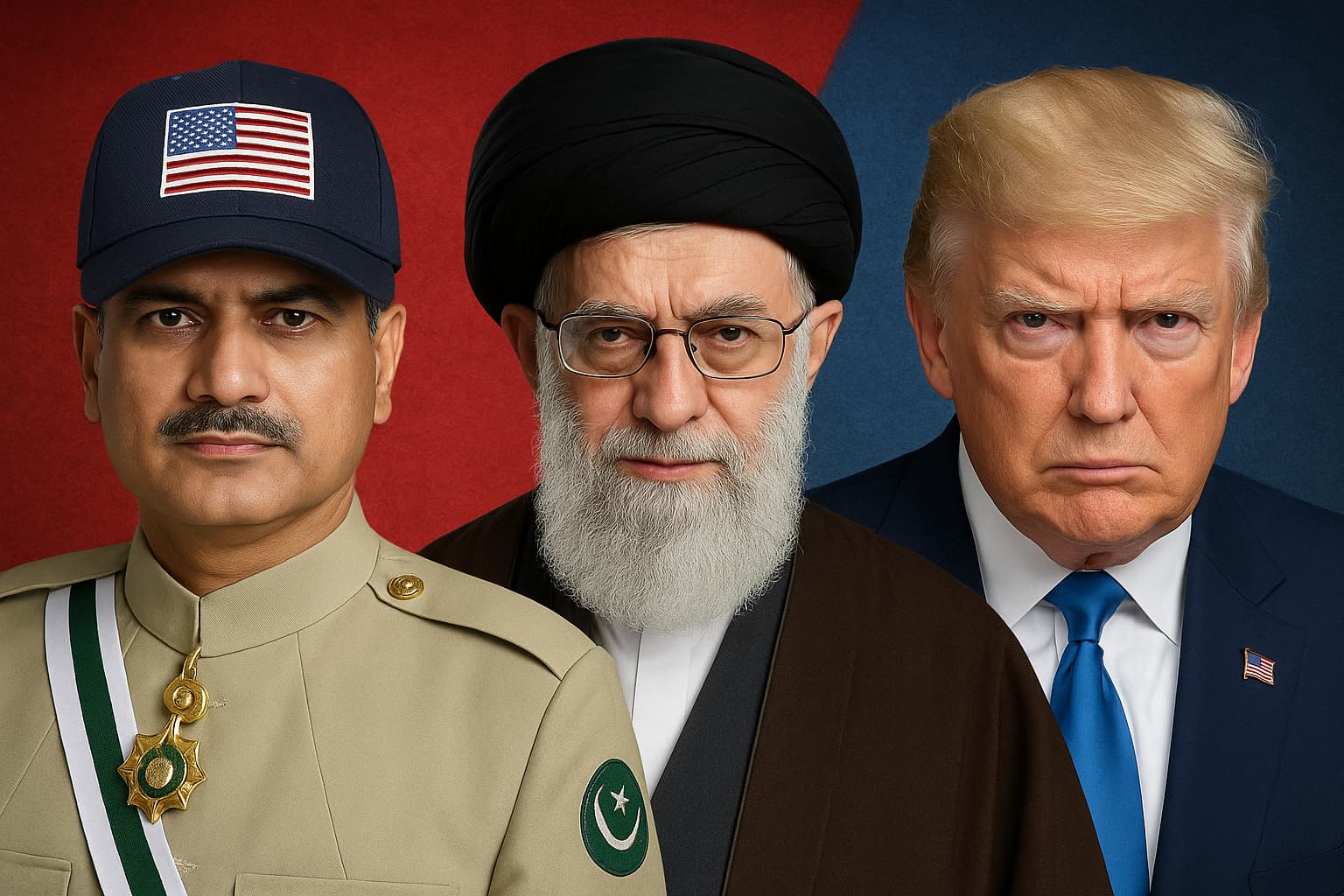TRUMP’S LUNCH WITH PAK ARMY CHIEF SPARKS GLOBAL CONTROVERSY
NEW DELHI: A private luncheon hosted by U.S. President Donald Trump for Pakistan’s Army Chief, General Asim Munir, has triggered a wave of international controversy, raising questions about Pakistan’s role in the ongoing Israel-Iran conflict and the broader implications for regional stability.
The informal event, held in Washington D.C., has become the subject of intense scrutiny after a widely circulated tweet suggested that Pakistan may be covertly assisting the United States in spying on Iran.
The tweet, which remains unverified but has been shared thousands of times, alleged that Pakistan is facilitating the use of Battlefield Airborne Communications Node (BACN) technology by the U.S. to conduct surveillance over Iranian airspace. BACN allows real-time coordination between aerial and ground forces across vast distances, and its deployment in the region could be key in monitoring Iran’s strategic activities.
Fuelling the controversy further is an alleged screenshot claiming Israeli airstrikes recently targeted the headquarters of Iran’s state-run broadcaster IRIC. While the Iranian government has not officially confirmed the attack, independent sources reported multiple explosions in the vicinity, raising concerns about a broader intelligence-sharing nexus involving Pakistan, the U.S., and Israel.
Diplomatic observers in Washington and elsewhere are expressing alarm after the most talked private lunch by President Trump to General Asim Munir. Notably Munir was earlier invited to participate as the Chief Guest at a high-profile U.S. military parade but was cancelled after the serious objection by the Indian government. US policy makers and seasoned policy experts also opposed the idea for many reasons. Observers feel that giving so much importance to Pakistan is a significant shift in American strategic alignment in South Asia, potentially at the expense of long-standing regional balances.
Former U.S. diplomats and members of think tanks such as the Brookings Institution and the Council on Foreign Relations have expressed surprise over Pakistan’s sudden prominence in U.S. defence diplomacy. Many are questioning whether Trump’s overtures to Pakistan indicate a deeper geopolitical strategy aimed at using Pakistan as a strategic foothold in the unfolding Israel-Iran confrontation.
“Given the high-stakes nature of the Iran conflict, any alliance or cooperation that enhances U.S. or Israeli capabilities in the region—especially one involving Pakistan—must be thoroughly examined,” said a senior fellow at a Washington-based policy institute. “Pakistan’s military intelligence apparatus has deep roots in the region, and their involvement could reshape the contours of Middle East security.”
As of now, neither the Trump administration nor the Pakistani military has issued any official statement regarding the allegations. However, the event has undoubtedly raised eyebrows across diplomatic circles, intensifying global debate over the delicate intersections of diplomacy, surveillance, and war in the Middle East.
The situation remains fluid, but one thing is clear: the Trump-Munir luncheon may mark a new chapter in U.S.-Pakistan relations—with potentially far-reaching consequences.
(Writer is Senior Journalist and Political Commentator)






